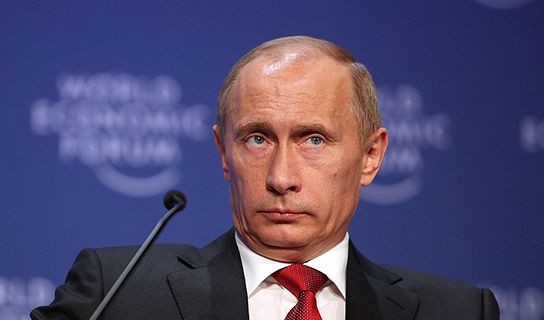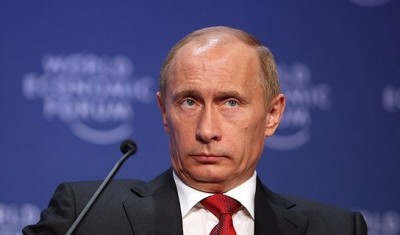The protests in Hong Kong over the past week have captivated the world and led to whispers of a Chinese “Maidan,” a street protest that leads to major (and overdue) political change. Discontent with Beijing’s handling of the free-market economy, in particular its decision to have a major hand in selecting Hong Kong’s chief executive in 2017, has fed popular dissatisfaction with the mainland and erupted into mass protests unseen in any part of China for the past quarter-century. While the end result of these protests is unknowable at this point, the mere fact of their existence has continued make the leaders of the BRICS countries nervous. This group of autocracies and near-autocracies are united by an overwhelmingly interventionist approach to economic policy, and in recent months have been led by Russia, the poster child for terrible economics.
Predictably, and as they have done with similar eruptions of popular discontent in Kyiv and Moscow, Russia’s government is striking back at this display of free thinking in its giant neighbor. Russian state-owned television outlets have begun to brand the protests in Hong Kong as the nefarious doings of an omnipresent United States, a global power that is able to topple Russian cronies such as Viktor Yanukovych and stir trouble in Russia’s newest buddy, China. And, as with the Ukrainian protests, the more people have asserted their right to free speech and assembly, the Russian propaganda machine has gone into full anti-American mode. As reported in the Wall Street Journal, a correspondent for Rossiya 24 stated that it’s unlikely that school-age (including university-age!) students “learned on their own, at their desks, how to turn on their mobile-phone screens simultaneously for an effective image. It’s unlikely that people of school age came up with the elegant idea of bringing umbrellas, again creating a juicy picture.”
Well, yes, if they were sitting in Russian state-owned schools, they likely did not learn how to do that, since such an obviously US-inspired skill is forbidden in Moscow’s academic halls. However, 3 year-olds in the US know how to turn on and off an iPhone, make calls, or unwittingly disable apps or erase emails; after a decade’s more experience, it would be fairly easy to learn how to do it with another human.
However, this approach, that people cannot learn anything unless instructed by the state, says much more about Russia and its continued woes than about the United States and its supposed omnipotence. Not believing the power of uncoordinated actors suddenly coming together in their own best interest has been a staple of Russia’s entire economic policy, which denies the efficacy of the market – the market of course the perfect example of uncoordinated actors following their best interests and leading to optimal outcomes for all. Russia’s sclerotic economy, shoved into recession by sanctions following the invasion of Ukraine, is dominated by state-owned enterprises. And this politically-connected sector is continuing to grow and assume importance, if the recent arrest of Vladimir Yevtushenkov in order to take over of his oil company Bashneft (one of the rare few privately-owned energy companies) is any indication.
Indeed, this fear of “people power” is the key hallmark of Putinism, in both the political and economic sphere. People cannot be trusted to make sound economic decisions, and thus the state must guide economic development (individual entrepreneurs are treated with disdain and suspicion as trying to rip-off others). People cannot be expected to learn on their own, unless they are taught. And everyone knows that people cannot be expected to organize on their own, outside the aegis of the state. When your worldview believes that all power flows from the state, whether political or economic, it is easy to make the leap that anything that happens contra to the state must be organized by another state. In Putin’s Russia, there is no individual, there is only the group. And the only group that matters is Russia; it is this sort of thinking that avoids cognitive dissonance from ordered federalism in Ukraine while jailing those who support federalism in Russia.
The irony specific to the Kremlin’s new paranoia is that Russia still attributes some mythical power to the United States, a power which has all but dissipated over the past two decades. The US military, while enormous, cannot impose its will as it once did, nor is the US the global economic power it still thinks of itself as. The economic policies of first the George W. Bush administration, now kicked into high gear by President Obama, have left the US mired in a “recovery” that is virtually indistinguishable from a recession. Moreover, the increasing regulation and meddling of the US government into virtually every aspect of its citizens’ lives has increased exponentially. The US is no longer the standard-bearer for economic freedom, slipping to 17th in the world in the Fraser Institute’s rankings from a high of 3rd in the world in 1990 and 2000.
In this sense, Russia and the US are converging, but not with a Russian ascendance. Of course, there is a long way to go before the US adopts Putinism and the blatant bullying and murder of political opponents, transfer of major industries to political cronies, and absolute reduction of the economy to one reliant on what is pulled out of the ground. But the philosophy behind Obama’s and Putin’s policies shares many similarities, not least of all the belief that people cannot be trusted to make decisions in their own best interest. To paraphrase Gerald Ford’s quote (usually misattributed to Thomas Jefferson), the state big and powerful enough to give you healthcare is also powerful enough to take it away.
Or perhaps Putin accuses the US of being behind everything in the world because he only sees what he could be doing, if he had the wealth of the United States. Given his economic and foreign policies, there is little hope of ever realizing that dream. Thankfully.




